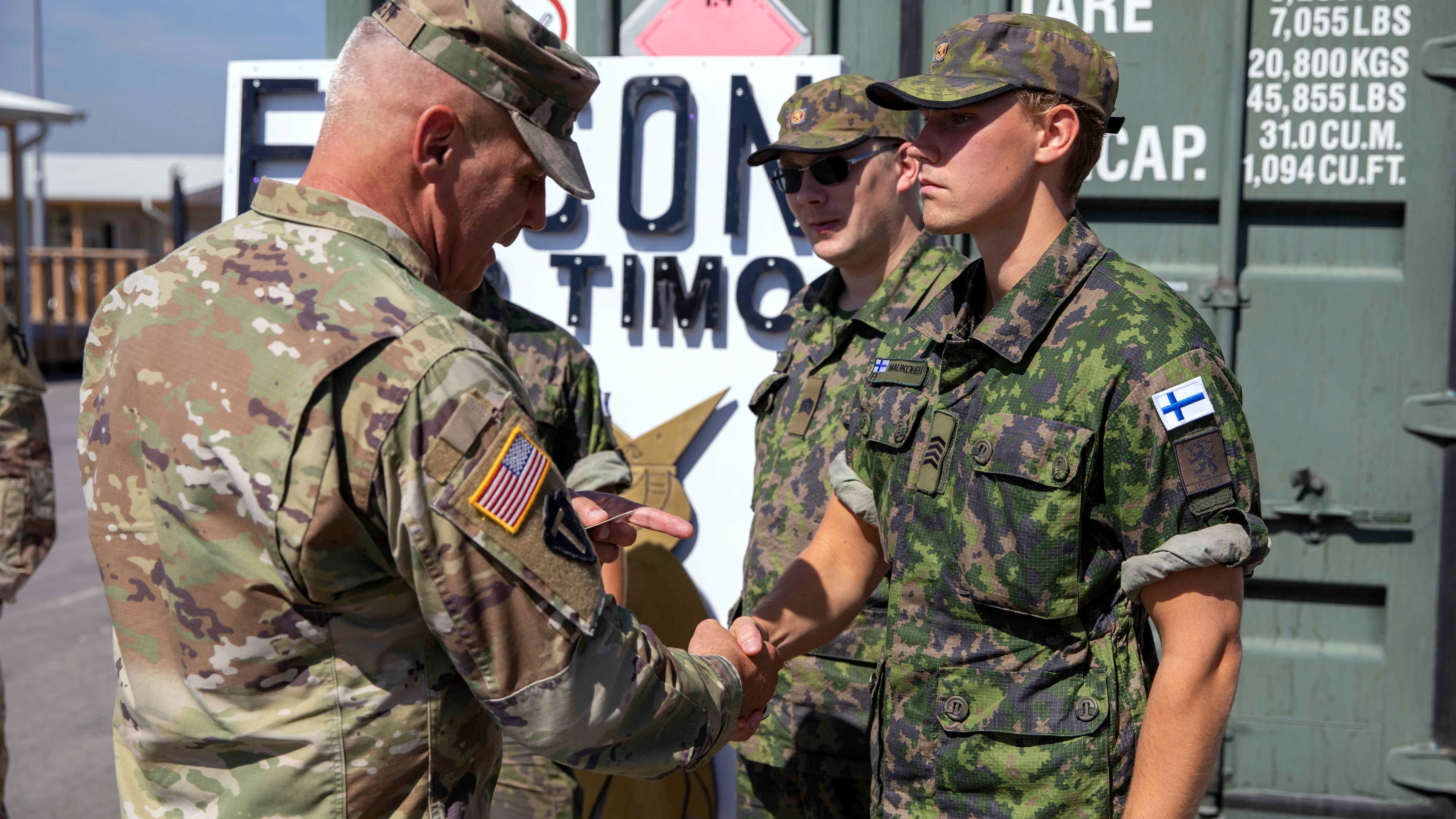National Guard to Add 6 New Partners in 2024
National Guard to Add 6 New Partners in 2024

The National Guard’s State Partnership Program will grow by several nations this year, expanding to more than 100 the number of U.S. military partnerships with allies and partners, said Gen. Daniel Hokanson, chief of the National Guard Bureau.
In remarks before defense and industry leaders participating in the McAleese Defense Programs Conference in Washington, D.C., Hokanson announced that Finland, Palau, Saudi Arabia, Sierra Leone, Sweden and Tanzania will be added to the program in 2024.
Created in 1993 to help establish military ties with 13 former Soviet bloc nations, the State Partnership Program in coordination with DoD and the State Department has paired 100 partner nations in every geographic combatant command with the National Guard in the 50 states, plus territories and the District of Columbia.
The newly announced partner nations will be paired with states in the coming months, a process subject to DoD, State Department and combatant command input and approval, according to an Army news release.
“Freedom and democracy are American values—but we can’t uphold them alone,” Hokanson said at the March 7 forum, according to the news release. “Instead, we must tend to our networks, nurture our alliances and invest in the partnerships that may one day make the difference between chaos and stability, authoritarianism and democracy, or victory and defeat.”
Hokanson said the program is one of the most productive, cost-effective security cooperation programs the United States has to offer. Positioned in 2,800 communities across the country, the Guard also is experienced with disaster response, search-and-rescue and civil-military relationships—focus areas of most State Partnership Program affiliations, the news release said.
In recent years, Guard troops have conducted about 1,000 training exchanges with their foreign counterparts annually, focusing on everything from peacekeeping operations to NCO development, lifesaving techniques and cyber defense, according to the release.
“The pairing of a state with a nation is not random,” Hokanson said. “Demographics, economics and military size and composition are all factored in. This helps establish a sense of commonality and to make the partnerships beneficial for both parties.”

